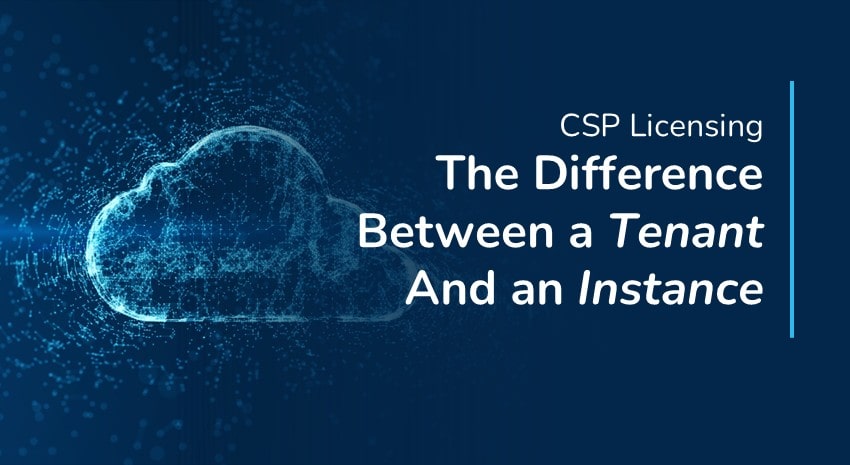Understanding CSP Licensing: The Distinction Between a Tenant and a License

When navigating Business Central licensing, it’s essential to understand two key concepts: tenants and licenses. These foundational components of Microsoft’s Cloud Solution Provider (CSP) program often lead to confusion among businesses, especially when dealing with multinational operations.
What is a CSP?
The CSP program is intended to simplify the procurement and management of Microsoft cloud solutions. Microsoft uses Cloud Solution Providers to sell their cloud solutions. Companies purchase their Microsoft solutions through CSP partners, like ArcherPoint. The CSP partner establishes relationships with their clients and provide services to their clients including:
- Selling licenses for Microsoft applications like Business Central.
- Administering licenses and security configurations.
- Assisting with troubleshooting issues like email or application errors.
What is a Tenant?
A tenant is essentially a virtual container for a company’s Microsoft services. Think of it as a box where all the organization’s cloud-based resources reside. These resources include:
- Azure Active Directory (AAD) for authentication and user management.
- Microsoft 365 services like Teams, SharePoint, and Exchange.
- Business applications like Dynamics 365 Business Central.
All instances of these services are interconnected within the tenant. For example, if a multinational company has operations in the U.S., UK, and Germany, it may opt for a single tenant to house all its services. This setup enables seamless collaboration and communication across geographic locations.
What is a License?
A license is a subscription to use specific Microsoft applications or services within a tenant. Licenses are tied to user accounts or specific instances of applications. For example:
- A Business Central license might allow access to one production instance and up to three sandbox instances.
- Each user in a tenant might require a Microsoft 365 license to access Teams, Outlook, and Word.
Licenses dictate both the availability of services and the scalability of operations. For instance, a company might purchase 135 Business Central Premium licenses for its U.S. operations while acquiring separate licenses for its German and UK subsidiaries.
Tenant and License Interaction: An Example
Let’s look at an example of how tenants and licenses work together:
- Unified Tenant, Multiple Regions: A U.S.-based company operates globally but maintains a single tenant. Within this tenant, they deploy instances of Business Central for each region (e.g., U.S., Germany, UK, Brazil, etc.). This centralization allows seamless integration of resources like email and file sharing.
- Region-Specific Licensing: Each region has its own instance of Business Central backed by specific licenses. Licenses enable user access to specific instances within the tenant. For example, the German instance might have 100 licenses, while the UK instance has 75. Despite residing in the same tenant, each instance of Business Central operates independently.
- Data Residency Compliance: Even though all instances are within a single tenant, data for each region is stored locally to comply with laws like GDPR in the EU. For instance, the UK instance’s data resides in a UK data center.
Challenges in Multinational CSP Deployments
One common point of confusion arises when companies need to deploy Business Central instances in countries outside their CSP’s operating region. Data residency, licensing rules, and CSP relationships must align with your organization’s global structure. For instance:
- Scenario 1: U.S. Parent Company: If a U.S.-based company owns subsidiaries in the UK, its CSP partner (e.g., ArcherPoint) can deploy a UK instance within the U.S. tenant. The data will reside in the UK while the licensing is managed through the U.S. CSP.
- Scenario 2: Foreign Parent Company: If a UK-based parent company owns a U.S. subsidiary, the licensing must come from a UK CSP. U.S. CSPs are restricted from selling licenses to tenants based outside their authorized countries.
ArcherPoint can help
By understanding the distinctions and interplay between tenants and licenses, businesses can optimize their use of Microsoft cloud services, ensuring scalability and compliance across borders. Whether deploying a single instance for a local office or managing a multinational operation, working with a knowledgeable CSP partner like ArcherPoint can help you navigate the complexities of tenant management and licensing to ensure compliance and efficiency.
Contact ArcherPoint to learn more.
Trending Posts
Stay Informed
Choose Your Preferences
"*required" indicates required fields
